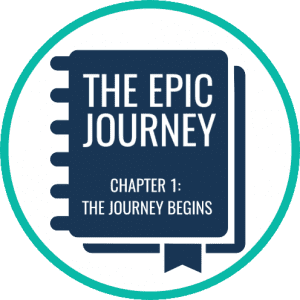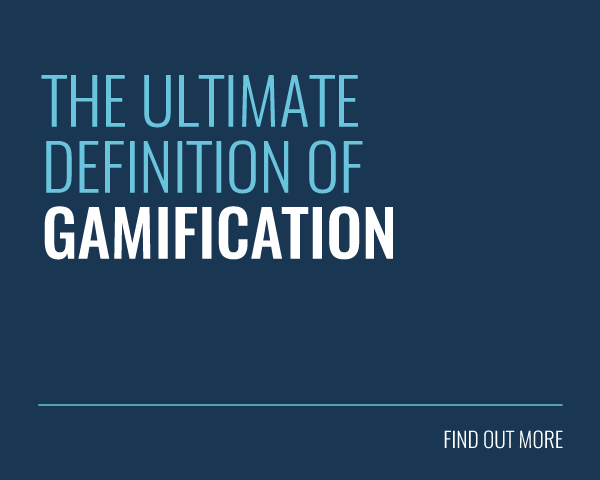Most of us spend 8 hours per day at work. When we’re not doing the actual work, we’re planning what we’re going to do and working out how we’re going to do it. But how often do you stop and ask yourself why?
Of course, somebody has to put bread on the table, but salary is gradually taking a back-seat to something much grander. Something we like to call “Epic Meaning”.
In a recent study, it was discovered that half of millennials would take a pay cut if they found a job that matched their values.
This highlights the mindset of the next generation of employees. A demographic that will make up 75% of the entire global workforce within the next decade.
“Efforts and courage are not enough without purpose and direction.”
-John F. Kennedy
It’s not enough to buy commitment from employees. They need to believe they’re working towards some higher purpose. This is the very essence of “Epic Meaning” according to Growth Engineering, but let’s hear a few more interpretations.
Four Epic Meaning Experts
Yu-kai Chou: Gamification Guru
 As far as we’re concerned, Yu-kai Chou is one of the good guys. As one of the foremost authorities on gamification, he knows the difference between tacked-on game mechanics and holistic gamified projects.
As far as we’re concerned, Yu-kai Chou is one of the good guys. As one of the foremost authorities on gamification, he knows the difference between tacked-on game mechanics and holistic gamified projects.
According to Yu-kai, Epic Meaning is “the drive where people are motivated because they believe they are engaged in something that is bigger than themselves.”
In a 2014 interview, he used contributors to Wikipedia as a clear example of the concept. If you contribute to Wikipedia, you do so “not to make more money, not even to build your resume, but because you feel like protecting humanity’s knowledge. Something bigger than yourself.”
Jane McGonigal: Proponent of Play
Jane McGonigal believes that there’s no meaning more epic than the power of games to change the world: “If we want to solve problems like hunger, poverty, climate change, global conflict, obesity, I believe that we need to aspire to play games online for at least 21 billion hours a week, by the end of the next decade.”
That might sound ambitious, but if you want to have some truly epic wins, you need to be powered by Epic Meaning.
Andrzej Marczewski: Professional Funalyst
We include Epic Meaning whenever we talk about game mechanics (the cogs and gadgets that make games work). When Andrzej Marczewski is defining a game mechanic, it has to meet the following criterion “A distinct set of rules that dictate the outcome of interactions within the system. They have an input, a process and an output.”
When he tried to apply the input, process, output formula to Epic Meaning, it wasn’t quite as easy as he expected. Now, Andrzej thinks that Epic Meaning might not even be a game mechanic at all: it’s just too… epic!
“The reality is, you can’t break something like Epic Meaning down like this, so it isn’t really a mechanic. It is the outcome of many different mechanics and interactions within a well-designed system.”
An Coppens: Engagement Evangelist
An Coppens is the Chief Game Changer at Gamification Nation Ltd. She has plenty of insight into Epic Meaning.
With her experience in employee and learner engagement, we were particularly interested in her views about how Epic Meaning communicates the goals of the organisation.
“It adds an element of context to the whole learning experience. In our brains, we always want to search for meaning and context. It’s all to do with how we connect information to what we already know in our brains… and form connections that are building on top of other things that are familiar. The more you can connect it with what’s already living in the organisation, the better.”
If you want to catch the whole interview, stay tuned to GETV!
Epic Meaning redefined?
As we’ve examined meaning and purpose in working life, we’ve come to realise something. Sure, the workforce of today wants to believe that their input has a real impact on the success of the business, but true Epic Meaning needs to extend beyond the confines of the organisation. The vision and values of the business should underpin the Epic Meaning, and if the employees can’t agree with this core, they’ll never fully buy into the mission.
A Good Day’s Work
In a report by Penna entitled ‘A Good Day’s Work’, it was proposed that ‘Good Work’ isn’t an individual, organisational or societal issue – it’s a combination of all three.
“Good work is individually satisfying, organisationally productive and socially beneficial. Only an alignment between these three levels…results in…truly good work”
Even mighty corporate giants like McDonald’s realise the importance of considering the impact of the business as a whole:
“To work for an organisation that you do not care about and which does not care about you is a soulless pursuit. To work for a company which exists within a community but plays no active part in that community is equally unsatisfying. I believe that as individuals, teams and organisations we have to contribute in all three areas – to do any less is morally, socially and commercially untenable.”
– David Fairhurst, VP People, McDonald’s Restaurants Ltd
We have to wonder if these businesses would have arrived at such a conclusion if they weren’t trying to solve an employee engagement problem. In this way, the demands of the learner dictate the direction of the business – what the individual learner does has an actual impact on the bigger picture. That, dear reader, is the definition of Epic Meaning.
If you want to improve engagement in your training programme, getting your Epic Meaning right is just one part of the solution. For the rest, you need to grab our Engagement Engine workbook and start your journey towards truly meaningful training!









